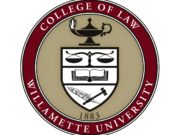It’s something of a slow news day for the pro-speech side of campaign finance issues so here’s a piece from a young student writing for Policy Mic on how super PACs are shifting focus and moving a little more solidly into the realm of lobbying for political issues instead of political candidates. Without taking a position on the issue of immigration reform — that’s not our role here at CCP — we post the following piece simply — and only — because, as the author asserts, “In 2013, now even conservative super PACs are pushing members to strike a deal and battling other conservative critics of immigration reform, a good sign for those hopeful to see a deal cut in the next month.”:
It is up to constituents, lobbyists, think tanks, PACs, and super PACs to pressure legislators to support this reform, or at least cushion the political fallout if the support is not well received back home. For Republicans, groups citing the economic benefits of immigration reform such as the conservative think tank American Action Forum allow lawmakers to better justify their eventual votes in favor of whatever legislation emerges from committee markup.
Groups such as the U.S. Chamber of Commerce, Grover Norquist’s Americans for Tax Reform, Hispanic Leadership Network, a branch of the Speaker Boehner-aligned American Action Network, ImmigrationWorks USA, the National Immigration Forum, and former U.S. Secretary of Commerce Robert Gutierrez’s Republicans for Immigration Reform have keyed efforts to support conservative leaders.
One thing people weren’t focused on in the wake of Citizens United and SpeechNow was what super PACs would be up to when there were no candidates to support but still money to be raised and spent. While some are still heavily focused on promotion of candidates — and new ones pop up every day with that primary goal — issue advocacy seems to be a focus for a great many. Which begs the questions: will issues drive candidates’ positions more than in the past given the larger amounts of money devoted to those issues afforded by super PACs? And if that happens, will that be a good or bad thing?













